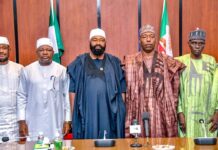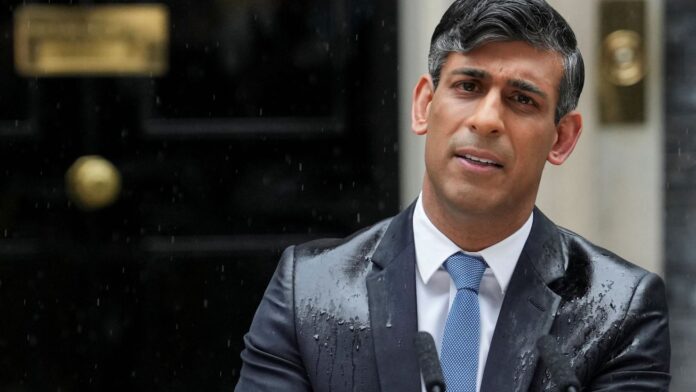Prime Minister Rishi Sunak has called a summer UK general election to take place on Thursday 4 July.
He had been widely expected to wait until the autumn before triggering the poll, which does not legally have to be held until January 2025.
But in a surprise move, he announced the first July election since 1945.
It will see the Conservatives try to win a fifth consecutive term in office, taking on Sir Keir Starmer’s Labour Party, which is ahead in opinion polls.
Parliament will be suspended on Friday, before being formally shut down on Thursday next week, in advance of the official five-week election campaign.
Mr Sunak had been expected to call the poll in October or November, to give his party a better chance of closing its polling gap with Labour.
His announcement, following hours of speculation in Westminster, came after it was confirmed inflation in the year to April fell to 2.3%, the lowest annual figure in almost three years.
In a sign he was seeking to capitalise on the figures to kick-start his election campaign, he added the stats were “proof that the plan and priorities I set out are working”.
But his statement announcing the election in Downing Street did not go entirely to plan, as he battled worsening rain and activists blasting out New Labour anthem Things Can Only Get Better over a loudspeaker.
Sir Keir said the poll would give voters the chance to “turn the page” on Tory “chaos”.
Adding it was “time for change,” he said: “Give the Tories five more years and things will only get worse. Britain deserves better than that.”
SNP leader John Swinney, who took over as Scotland’s first minister earlier this month, said the election was a chance to “remove the Tory government and put Scotland first”.
Lib Dem leader Sir Ed Davey said it would be a chance to “kick Rishi Sunak’s appalling Conservative government out of office”, whilst Greens co-leader Carla Denyer said her party was aiming to elect “at least four” new MPs.
At the last election in 2019, Boris Johnson won an 80-seat majority after calling a snap poll as he fought to get his Brexit withdrawal deal through Parliament.
It was followed by an extraordinarily volatile period in British politics, as the country was hit by the Covid pandemic and Mr Johnson was forced to resign, amid a cabinet revolt over a series of scandals.
His successor Liz Truss lasted 49 days in the job before she quit, after a market backlash to her tax and spending plans announced at a hastily-arranged “mini Budget” in September 2022.
This is the first general election since 2015 that has not required a vote in Parliament to approve the date, since legislation fixing the time between polls was reversed two years ago.
It will be fought on the first set of new constituency boundaries since 2010, redrawn to reflect population changes since then, and will be the first where voters have to show ID.




















